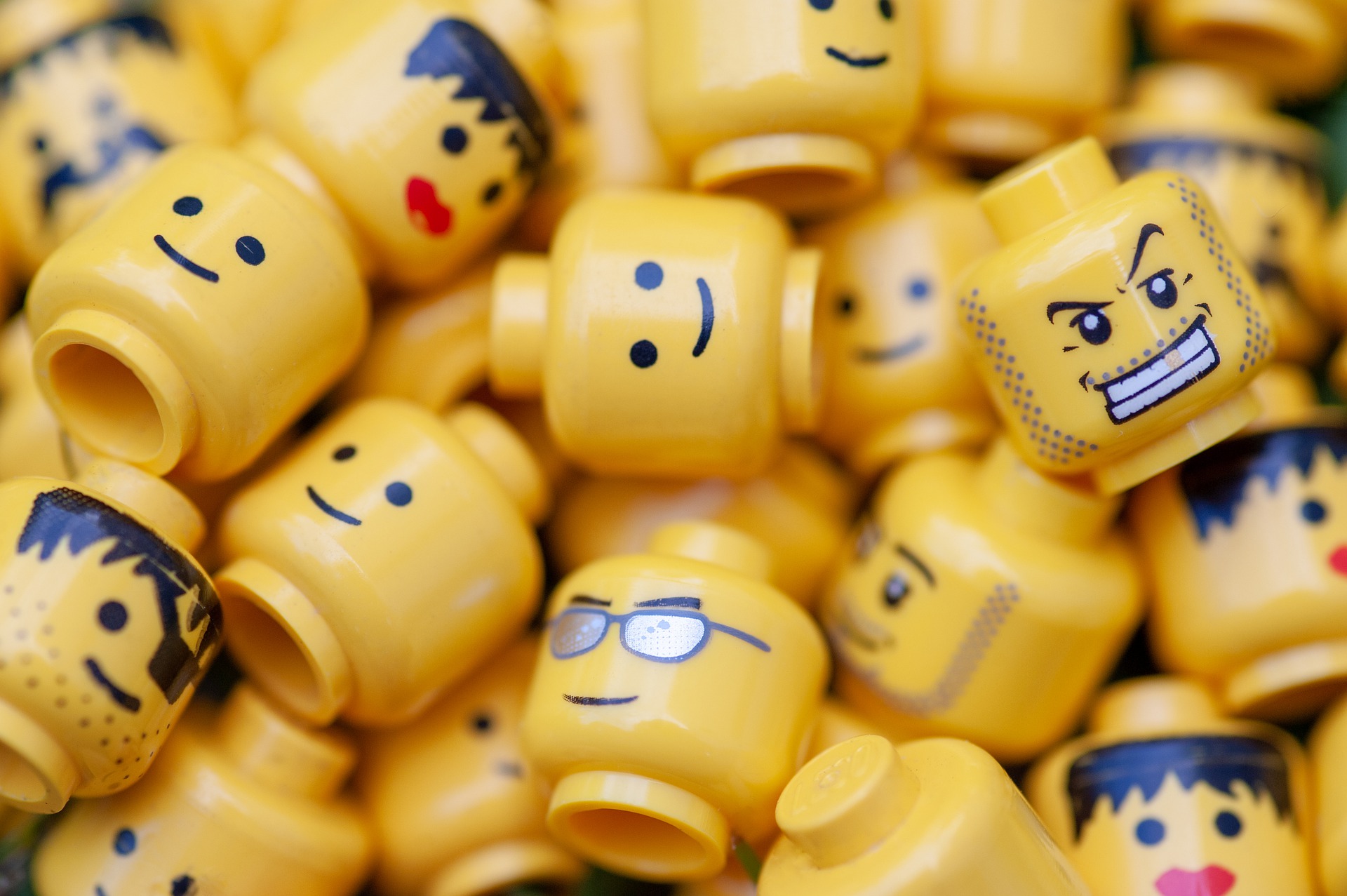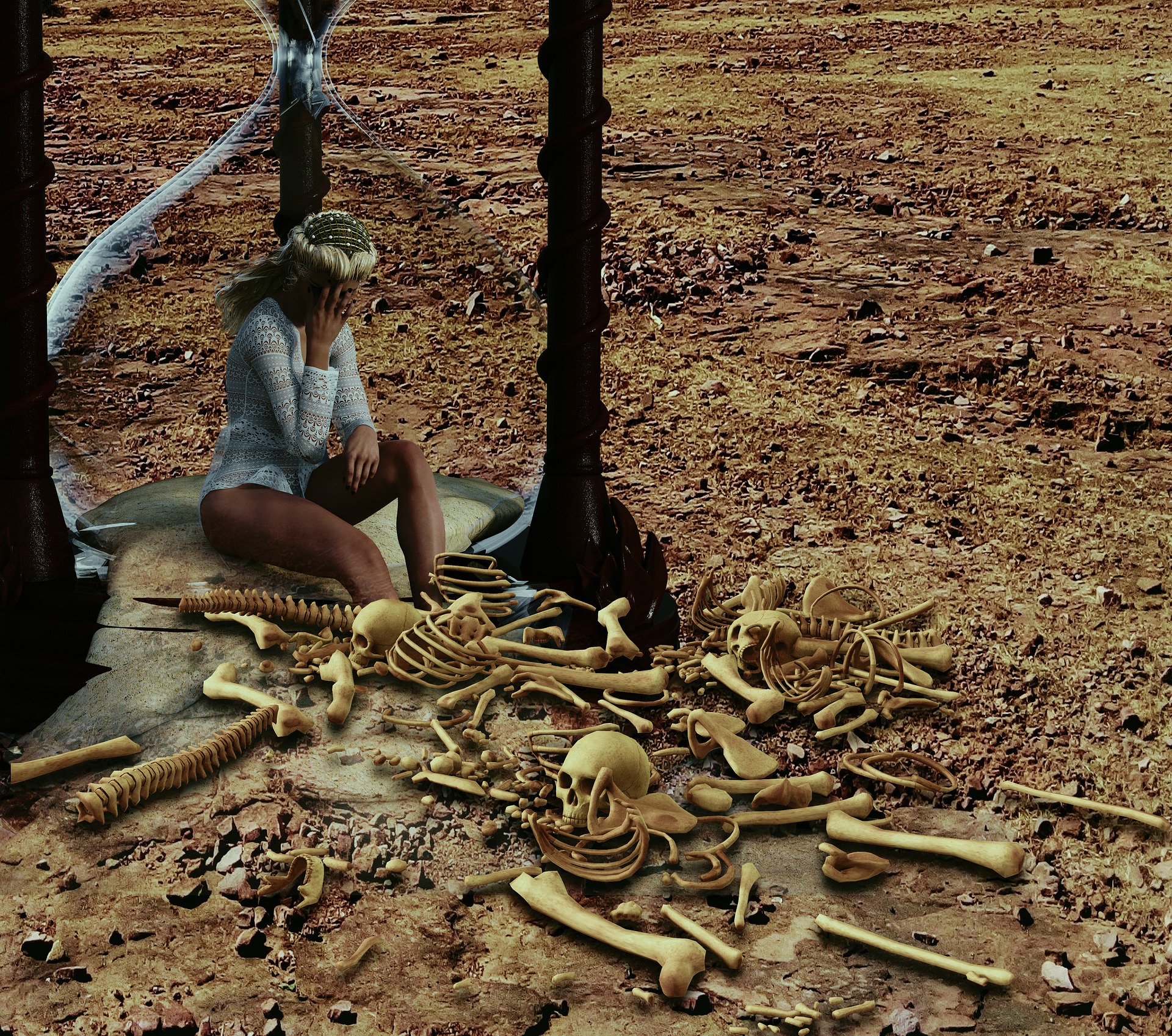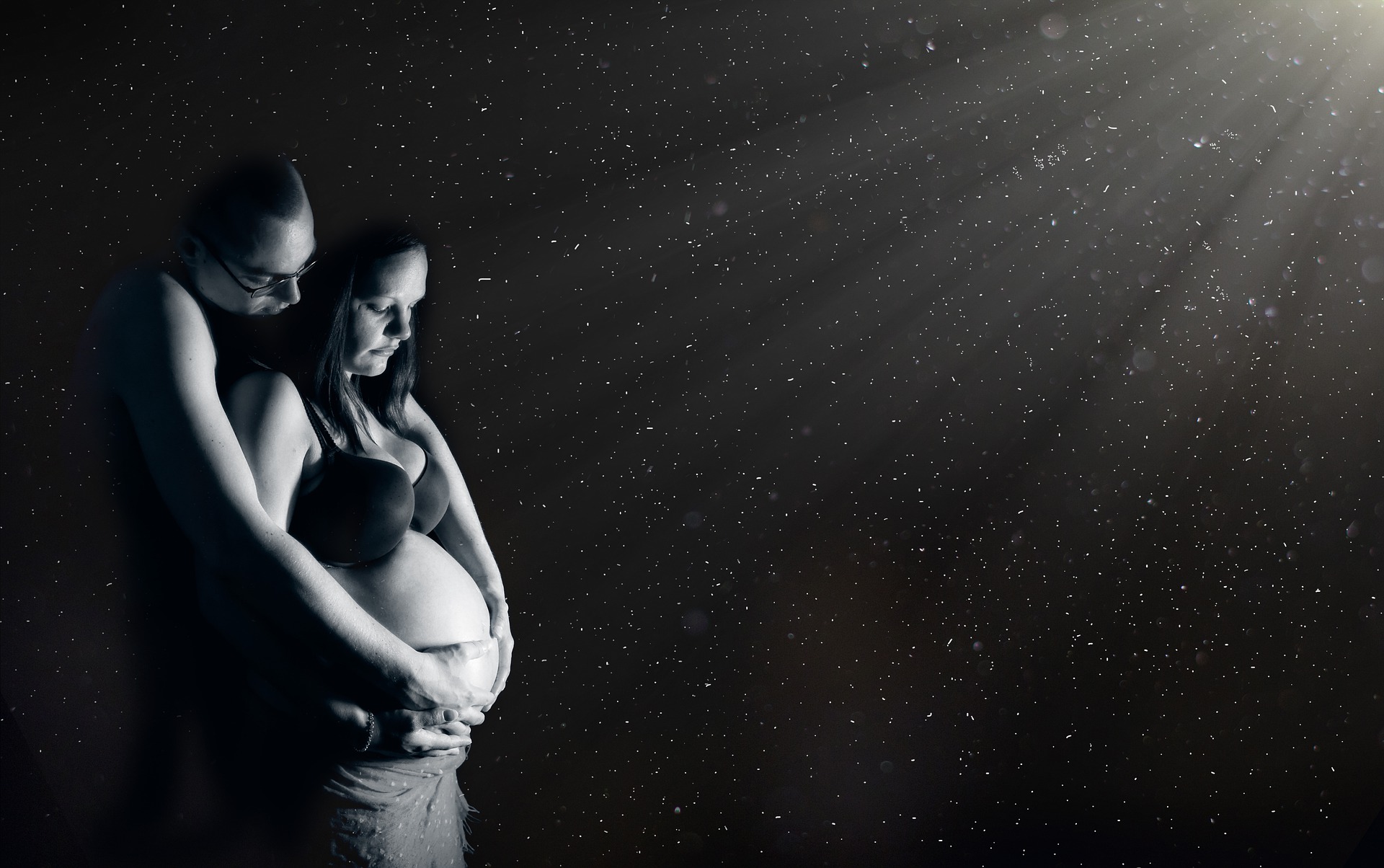Contact Bruce
About
PWP
Links
Photo
Credits:-
Hourglass drawing
(Pandannalmagen,
Pixabay)
Sperm mandala
(Clker-Free-Vector-
Images, Pixabay)
Sperm
(geralt, Pixabay)
Return to Nature!
(blanca_rovira, Pixabay)
Lego Heads
(AndrzejRembowski, Pixabay)
Love Flower
(Buhaan_, Pixabay)
Motherbaby
(Bru-nO, Pixabay)
Hourglass Desert
(anaterate, Pixabay)
Starry Couple
(46173, Pixabay)
|
 Birth and Perinatal Emergency (BPE)
Birth and Perinatal Emergency (BPE)
Most already know of the existential Climate and Ecological Emergency
(CEE).
Another less-known existential emergency is the Birth and Perinatal Emergency
(BPE).
Here are some of the issues:-
Sperm
Counts Plummetting
Sperm counts could reach zero
by 2045.
That means no more babies. This is due to the use of hormone-disrupting
"forever" chemicals used in plastic and so many other widely-used
products.
Instead of the world riding on a wave of destructive human invention,
we need to return to the ways of Nature, to work respectfully with
Nature, attune to Nature's cycles and gifts. A key way to do this is Demedicalise!
Modern Lifestyle creates Negative
Fertility/Pregnancy Outcomes
Our modern
lifestyle is creating many negative pregnancy outcomes. Examples:
An example is how the CEE's air
pollution
and its widespread increased heat/humidity is significantly associated
with: stillbirth, premature birth and low birth weight. The USA
meta-analysis
shows that pregnant women and developing foetuses are especially
vulnerable to the CEE, particularly the disadvantaged that have high
exposure to the CEE.
CEE = BPE = Child
Abuse.
"Forever" chemicals are getting almost
everywhere, in water, food, everyday consumer products. There
is
no safe level in water. Across
40 studies, toxic PFAS chemicals were detected in all
umbilical cord blood samples.
Herbicides used in farming are associated with reduced fetal growth and other fetal problems. Herbicides are better labelled "biocides" or "poisons", as they kill or harm all life. Organic farming, please. Organic food should be a human right!

Microplastics contaminate developing eggs.
They have been found
in foetuses. They are able to cross the placenta.
They pollute breast milk.
Meanwhile, bottle-fed babies daily swallow
millions of microplastics.
Science
is not yet able to say exactly what the health impact is but we can be
sure that this is an emergency, one of the most urgent environmental
issues of the 21st century.
Natural
Vaginal Birth is becoming Extinct
The widespread use of drugs and cesareans and tech (like artificial wombs)
and interventions and patriarchal science and spiritual denial is
completely destroying how Nature has intended for birth to be.
At an Animal level it is meant to be initiatory and orgasmic.
At a Spiritual level it is meant to be enlightening and ecstatic.
Michel Odent has warned us that we are in grave danger of no longer
birthing with love hormones. This is completely unknown in our
evolution and will have disastrous consequences. Our capacity to love
is at risk.
"The
aim of any futuristic birth strategy should be that
as many women as possible give birth vaginally, thanks to an
undisturbed flow
of love hormones. The future of our civilizations is at stake." (Michel
Odent)
What do you think will happen when Love is removed from Humanity?
Will we survive?
Solutions include: the need for women
to reclaim birth and once again Demedicalise!
Breastfeeding
is Dying; Breastmilk is being Poisoned
(1) Natural or normal
breastfeeding
is for 2-7 years. However, in the Rich World, way fewer than 1% of
babies are breastfed for more than one year. Why do we neglect to give
our younglings their magic
potion? It is a tragedy that compromises the physical, mental
and spiritual health of so many.
(2) Forever chemicals (PFAS) are used in many household products. They are difficult to avoid. They
do not break down naturally and are known to accumulate in humans. They
harm the immune system and disrupt hormones. They are linked to:
cancer, birth defects, liver and thyroid disease, plummetting
sperm counts, and many other serious health problems.
They have been discovered
in huge amounts
in the breastmilk of a wide variety of people. Babies are being exposed
to these dire dangers when they are at a very vulnerable stage of
development.
Exposure to PFAS may cause lactation to slow or stop altogether after six months.
PFAS reduce breastmilk's nutritional quality.
The problem is getting worse.
PFAS of all types need to be
banned.
(3) In 2022, microplastics were found in human breast milk for the first time.
Plastics often contain harmful chemicals, such as phthalates, which
have been found in breast milk before. Nevertheless, breastfeeding
remains by far the best way to feed a baby.
Public awareness needs to be raised to pressure politicians to promote laws that reduce pollution.
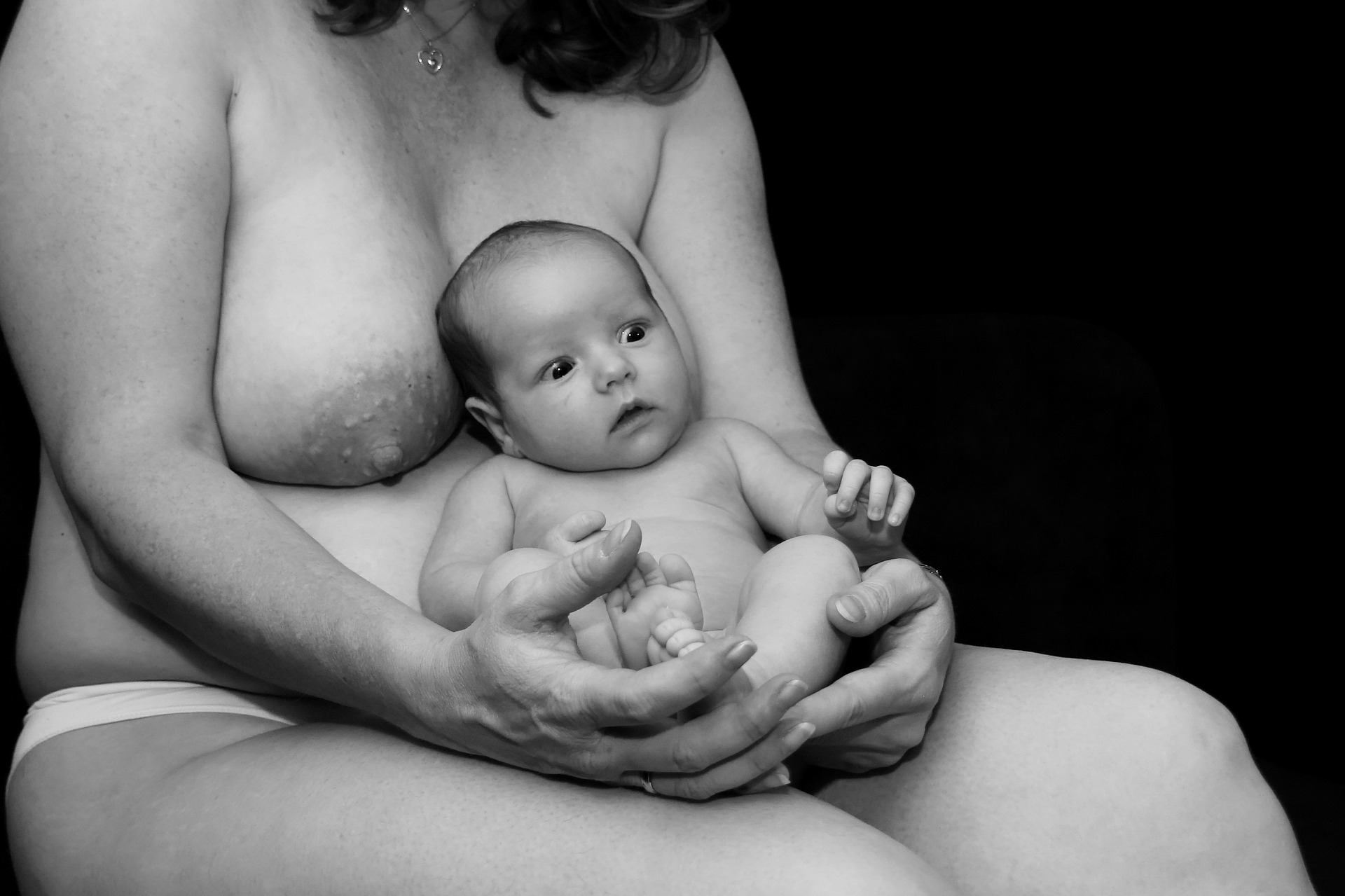
Ecosystem Reproductive Failure
due to Climate & Ecological Emergency
It is not only humans that are facing the BPE.
The manmade Climate and
Ecological Emergency
(CEE) is completely disrupting the rhythms, seasons and systems of
nature. Freak weather events are accelerating due to greedy and evil
humans. These events are causing havoc to the reproductive abilities of
complete ecosystems.
For example, in 2018 only a few animals and plants were able to
reproduce in the
Arctic.
It is only going to get worse. It is only going to accelerate further
and faster, especially as politicians, media and some
scientists
refuse to treat our brutal imposition on nature as an existential
emergency.
Nature provides our food. If nature fails, we fail. We can't eat money
or black oil or coal. This is one way to extinction.
We are in
denial. Tech
is not the answer, as it's not yet invented, we're too slow to adapt -
and tech usually creates even worse problems. We need to stop using fossil
fuels, consume less (especially the wealthy of the Rich World),
initiate degrowth,
simplify our
lifestyles, treat nature as sacred, and start building a Culture of Love, of Touch, of the Sun.
So
the choice is: reharmonise
with nature or face almost complete reproductive failure?
What is your
choice?
Resources
Sperm Annihilation
- Sperm
counts are on the decline – could plastics be to blame?
(Teresa Carr, The Guardian, 2019)
[A recent study that tested both men and dogs added to concerns that
chemicals in the environment are damaging the quality and quantity of
sperm].
- Falling
sperm counts could threaten the human race (Bryan Walsh,
Axios, 2021).
- Falling
sperm counts 'threaten human survival', expert warns (The
Guardian, 2021) [Epidemiologist Shanna Swan says low
counts and changes to sexual development could endanger human species].
- Sperm
count, endocrine disruptors and the future of the human race
(Brian McHugh, Yorkshire Bylines, 2021).
- Plummeting
sperm counts, shrinking penises: toxic chemicals threaten humanity
(Erin Brockovich, The Guardian, 2021) [The
chemicals to blame for our reproductive crisis are found everywhere and
in everything].
- Shanna
Swan: 'Most couples may have to use assisted reproduction by 2045'
(The Guardian, 2021)
[The professor of environmental medicine explains how chemicals in
plastics are causing our fertility to decline – and what we
can
do about it].
- Male
fertility: how everyday chemicals are destroying sperm counts in humans
and animals (Alex Ford and Gary Hutchison, The
Conversation, 2021).
- Falling
sperm counts aren’t as alarming as they sound
(Marion Boulicault and Meredith Reiches, The Guardian, 2021)
[They contest the predictions].
- Cocktail
of chemical pollutants linked to falling sperm quality in research
(Damian Carrington, The Guardian, 2022)
[Study finds people have ‘astonishing’ levels of
compounds thought to disrupt hormones].
- Study links in utero ‘forever chemical’ exposure to low sperm count and mobility (The Guardian, 2022)
[PFAS, now found in nearly all umbilical cord blood around the world,
interfere with hormones crucial to testicle development].
- Humans could face reproductive crisis as sperm count declines, study finds (The Guardian, 2022) [Global figures suggest sperm concentration has halved in 40 years – and the rate of decline is accelerating].
- How pollution is causing a male fertility crisis (Katherine Latham, BBC Future, 2023).
- Prenatal exposure to air pollution may hurt reproductive health in adult men, study finds (The Guardian, 2023) [Lower semen quality, higher risk of reproductive disorders].
- Plastics, pesticides and pills: how chemical exposures affect sperm health (Adrienne Matei, The Guardian, 2023)
[Poor diet, stress, smoking and obesity are known to impair sperm
health, but it's not the entire picture. Sperm decline is NOT a
personal failing; societal-level intervention is critically important
to protect us all from harmful chemicals. Beware
acetaminophen/paracetamol painkiller in pregnancy.].
- Microplastics found in every human testicle in study (The Guardian, 2024).
- Action needed on plastic additives linked to sperm decline, experts warn (The Guardian, 2025) [Other effects include smaller penises].
Fertility Flop
& Pregnancy Perils
- Climate
crisis poses serious risks for pregnancy, investigation finds
(The Guardian, 2020).
- Fall
in fertility rates may be linked to fossil fuel pollution, finds study
(The Guardian, 2021).
- Multiple
neonicotinoids in children’s cerebro-spinal fluid, plasma,
and urine (Laubscher et al., 2022)
[Widely-used food pesticides damage brain development, from
foetus
to child. They are associated with neurological disorders.].
- Global
heating linked to early birth and damage to babies’ health,
scientists find (The Guardian, 2022)
[Studies show high temperatures and air pollution during pregnancy can
cause lifelong health effects, like obesity. CEE = reduced
fertility, pregnancy complications, premature birth, birth defects,
increased hospitalisation of children. Vulnerable people - such as the
poor and those of colour - are affected the most.].
- ‘Forever
chemicals’ detected in all umbilical cord blood in 40 studies
(The Guardian, 2022)
[Studies collectively examined nearly 30,000 samples over the past five
years in ‘disturbing’ findings. Many linked fetal
PFAS
exposure to health complications in unborn babies, young children and
later in life. The chemicals are linked to birth defects, cancer,
kidney disease, liver problems and other health issues.].
- Toxic air pollution particles found in lungs and brains of unborn babies (The Guardian, 2022)
[Particles breathed by mothers pass to their vulnerable foetuses, with
potentially lifelong consequences. Affects developing brain. Avoid busy
roads.].
- Air pollution linked to almost a million stillbirths a year (The Guardian, 2022) [First global study after toxic pollution particles found in lungs and brains of foetuses].
- ‘Forever chemicals’ linked to infertility in women, study shows (The Guardian, 2023).
- Pregnant women near farms had higher weedkiller levels during spraying season (The Guardian, 2023) [Associated with reduced fetal growth and other fetal problems].
Plastics Plague
- Bottle-fed
babies swallow millions of
microplastics a day (The Guardian, 2020)
[Exposure is far higher than previously thought and also affects
plastic food containers].
- Microplastics revealed in the placentas of unborn babies (The Guardian, 2020) [Health impact unknown but scientists say they may cause long-term damage to foetuses].
- Plastic
particles pass from mothers into foetuses, rat study shows (The
Guardian, 2021) [Nanoparticles found in foetal brains and
hearts, but impact on human health is as yet unknown].
- Babies
are full of microplastics, new research shows (Euronews, 2021).
- Microplastics
cause damage to human cells, study shows (The
Guardian, 2021).
- Microplastics found in human breast milk for the first time (The Guardian, 2022) [Researchers concerned over chemical impacts on health of babies].
- Nanoplastics Interfere With Developing Chicken Embryos in Terrifying Ways (ScienceAlert, 2023).
- ‘Explosive growth’ in petrochemical production poses risks to human health (The Guardian, 2024)
[Male & female fertility, neurodevelopmental & endocrine
disruption, & more. From many materials: pesticides, building,
cosmetics, fabrics, toys.].
- Microplastic discovery in penises raises erectile dysfunction questions (The Guardian, 2024) [And recently found in testes & semen amid concerns of falling male fertility].
- Microplastics in placentas linked to premature births, study suggests (The Guardian, 2025).
- Microplastics found in human ovary follicular fluid for the first time (The Guardian, 2025) [Its toxicity impacts fertility? Eat organic. Avoid plastic in the kitchen.].
- Action needed on plastic additives linked to sperm decline, experts warn (The Guardian, 2025) [Other effects include smaller penises].
Vaginal Birth Extinction
Breastfeeding Death
Ecosystem Collapse due
to CEE
- An
ecosystem-wide reproductive failure with more snow in the Arctic
(Schmidt et al., PLoS, 2019).
- Fly
infertility shows we’re underestimating how badly climate
change harms animals (Belinda van Heerwaarden and Ary Hoffmann,
The Conversation, 2021)
[A species can survive episodes of intense heat stress but they still
become infertile at as low as 2°C global warming. It affects
cows,
pigs, fish, birds, so likely humans too.].
- Infertility
poses major threat to biodiversity during climate change, study warns
(Phys.org, 2021)
[Perhaps half of all species are vulnerable to thermal infertility.
This is where species survival is determined by the temperature at
which males become sterile, not their lethal temperature. This suggests
the CEE will be devastating far quicker than we think.].
|
Also see:-
Natural Birth
Birth
articles
|

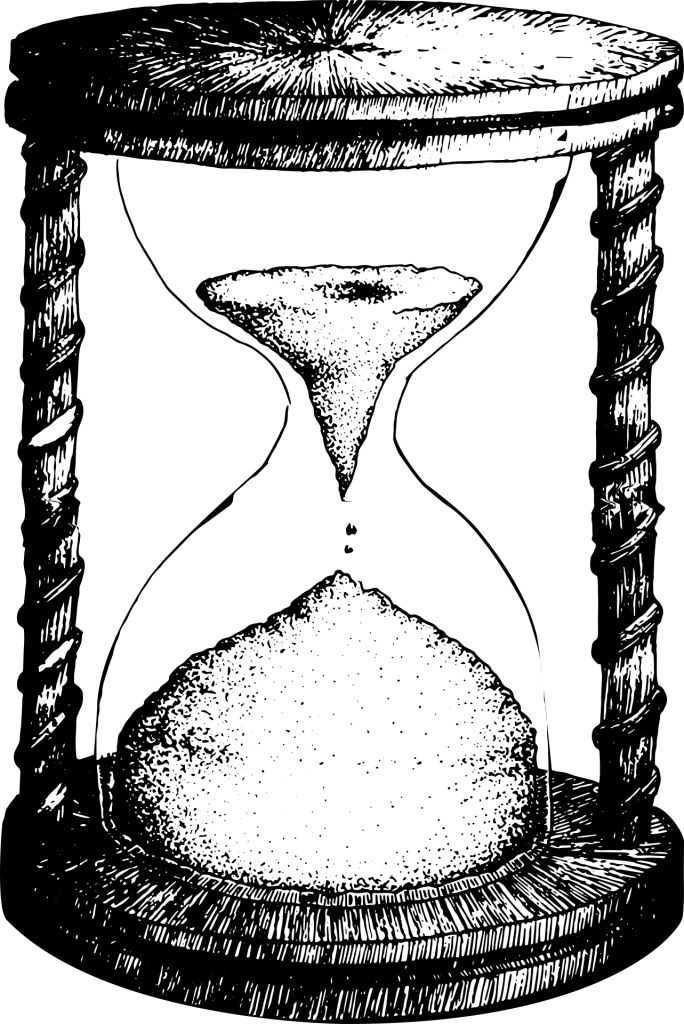 BPE
BPE

 BPE
BPE
 Birth and Perinatal Emergency (BPE)
Birth and Perinatal Emergency (BPE)

